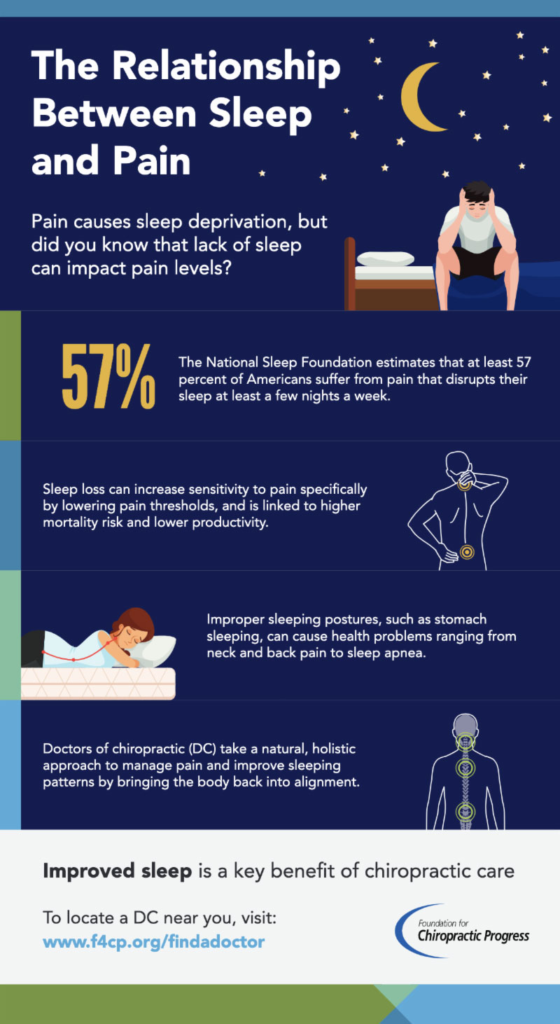Struggling to get a good night’s sleep can be incredibly frustrating and exhausting. If you’re one of the many people dealing with insomnia, you might be searching for effective and natural solutions. Chiropractic care offers a promising approach to improving sleep quality and reducing insomnia. By addressing the root causes of sleep disturbances, chiropractic care can help you achieve the restful sleep you deserve.
Key Takeaways
- Regular chiropractic adjustments enhance nervous system function, promoting better sleep.
- Chiropractic treatments can reduce inflammation and improve circulation, aiding sleep.
- Combining chiropractic care with lifestyle changes can maximize sleep benefits.
- Consulting a qualified chiropractor ensures safe and effective insomnia relief.
- Chiropractic care can improve sleep by addressing spinal misalignment and reducing pain.

How Chiropractic Care Works
Chiropractic care is a holistic approach that focuses on the body’s natural ability to heal itself. It involves hands-on manipulation of the spine and other parts of the body to improve alignment and function. This can lead to a variety of health benefits, including improved sleep.
Understanding Spinal Alignment
Spinal alignment plays a crucial role in overall health and well-being. When the spine is properly aligned, the nervous system can function optimally, allowing the body to heal and operate efficiently. Misalignment, on the other hand, can lead to pain, discomfort, and disrupted sleep patterns.
The Role of the Nervous System
The nervous system is the body’s communication network, transmitting signals between the brain and the rest of the body. Proper nervous system function is essential for maintaining balance and harmony within the body. Chiropractic care helps ensure that the nervous system is working at its best by addressing any interference caused by misaligned vertebrae.
- Improved nerve communication
- Enhanced relaxation and stress reduction
- Better regulation of sleep-wake cycles
By improving nervous system function, chiropractic care can help address the underlying causes of many problems – see below.
Chiropractic Adjustments Explained
Chiropractic adjustments are gentle, controlled movements that realign the spine and other joints. These adjustments are performed by trained chiropractors who use their hands or specialized tools to apply precise force to specific areas of the body.
The aim is to restore proper alignment, reduce pain, and improve overall function. By doing so, chiropractic care can help alleviate some of the common physical causes of insomnia, such as back pain and tension.

“The Science Behind Chiropractic …” from drcraighenry.com
The Benefits of Chiropractic Care for Insomnia
Chiropractic care offers a range of benefits for those struggling with insomnia.
By addressing the root causes of sleep disturbances, chiropractic treatments can help you achieve the restful sleep you need to feel your best.

“Restful Nights: Chiropractic Care for Insomnia …” from www.smergliachiropractic.com
Pain Relief and Relaxation
Chiropractic care is well-known for its ability to relieve pain, particularly in the back, neck, and joints. By alleviating discomfort, chiropractic adjustments can help you relax more easily, which is essential for falling asleep and staying asleep. Pain can often be a barrier to achieving restful sleep, but with regular chiropractic sessions, many people find that their pain is significantly reduced, allowing for deeper relaxation.
Improved Nervous System Communication
The nervous system plays a pivotal role in regulating sleep cycles. Chiropractic adjustments help ensure that the nervous system functions optimally by removing any interference caused by misaligned vertebrae. This improved communication between the brain and body can lead to more consistent and restful sleep patterns. When the nervous system is in harmony, the body can better manage stress and maintain a balanced sleep-wake cycle.
Better Circulation and Reduced Inflammation
Chiropractic care can also enhance circulation and reduce inflammation throughout the body. Proper blood flow is crucial for delivering oxygen and nutrients to tissues, including those in the brain. Improved circulation can help you feel more energized and alert during the day and more relaxed at night. Additionally, reducing inflammation can alleviate conditions such as arthritis, which can interfere with sleep.
Potential Impact on Snoring and Breathing Issues
Snoring and breathing issues can be significant obstacles to a good night’s sleep, not just for you but also for anyone sharing your bed. Chiropractic care may help address these problems by improving spinal alignment and reducing tension in the muscles around the airway. When the body is properly aligned, the airways can remain open and unobstructed, reducing the likelihood of snoring and sleep apnea.
Moreover, by enhancing overall respiratory function, chiropractic adjustments can lead to deeper, more restorative sleep. This can have a positive impact on both your physical health and your mood.
Research Supporting Chiropractic for Sleep Issues
Several studies have highlighted the potential benefits of chiropractic care for improving sleep. For instance, research has shown that chiropractic adjustments can help reduce pain, improve nervous system function, and enhance overall quality of life. These findings suggest that chiropractic care can be a valuable tool in managing insomnia and promoting better sleep.
In one study, participants who received chiropractic care reported improved sleep quality and reduced symptoms of insomnia. The researchers concluded that chiropractic adjustments could be an effective non-pharmacological approach to managing sleep disturbances.
Incorporating Chiropractic into Your Sleep Routine
If you’re considering chiropractic care as a solution for your insomnia, it’s important to find a qualified and experienced chiropractor. Look for practitioners who specialize in sleep-related issues and have a proven track record of success.
During your first visit, your chiropractor will conduct a thorough assessment to determine the best course of treatment for your specific needs. They may recommend a series of adjustments, along with lifestyle changes to support your sleep goals.
Combining chiropractic care with other sleep-promoting practices, such as maintaining a regular sleep schedule and creating a relaxing bedtime routine, can maximize the benefits and help you achieve lasting relief from insomnia.
Finding a Qualified Chiropractor
Choosing the right chiropractor is crucial to effectively address insomnia through chiropractic care. Start by seeking recommendations from friends, family, or healthcare providers. It’s important to verify the chiropractor’s credentials and ensure they are licensed to practice in your area. Additionally, look for chiropractors who specialize in treating sleep disorders or have experience with patients suffering from insomnia.
What to Expect During Your First Visit
Your initial visit to a chiropractor will typically involve a comprehensive evaluation. The chiropractor will ask about your medical history, lifestyle, and specific sleep issues. They may perform a physical examination, focusing on your spine and posture, to identify any areas of misalignment or tension. For more information on how chiropractic care can help improve sleep quality, visit this article on chiropractic care and sleep.
Based on this assessment, the chiropractor will develop a personalized treatment plan tailored to your needs. This plan may include a series of adjustments, recommendations for exercises or stretches, and advice on lifestyle changes to support better sleep. The goal is to address the root causes of your insomnia and promote overall well-being.
Combining Chiropractic with Lifestyle Changes
While chiropractic care can significantly improve sleep quality, combining it with healthy lifestyle changes can enhance its effectiveness.
- Maintain a consistent sleep schedule by going to bed and waking up at the same time each day.
- Create a relaxing bedtime routine, such as reading a book or taking a warm bath, to signal your body that it’s time to wind down.
- Limit exposure to screens and bright lights before bedtime, as they can interfere with your body’s natural sleep-wake cycle.
- Engage in regular physical activity, but avoid vigorous exercise close to bedtime.
- Practice relaxation techniques, such as deep breathing or meditation, to reduce stress and promote relaxation.
Frequently Asked Questions (FAQ)
Many people have questions about chiropractic care and its potential benefits for insomnia. Here are some of the most common inquiries:
Is chiropractic care safe for everyone?
Chiropractic care is generally considered safe for most people, including children and the elderly. However, it’s essential to consult with a healthcare professional before starting any new treatment, especially if you have underlying health conditions. A qualified chiropractor will assess your individual needs and determine the safest and most effective approach for you.
How quickly can I expect results from chiropractic treatments?
The timeline for experiencing results from chiropractic care can vary depending on the individual and the severity of their sleep issues. Some people may notice improvements after just a few sessions, while others may require more time to see significant changes. Consistency is key, so it’s important to follow your chiropractor’s recommendations and attend regular appointments to achieve the best results.
In addition to chiropractic adjustments, making lifestyle changes and addressing other factors contributing to insomnia can also influence how quickly you experience improvements in sleep quality.
Are there any potential side effects of chiropractic adjustments?
Chiropractic adjustments are generally well-tolerated, but some people may experience mild side effects, such as soreness, stiffness, or fatigue after a session. These effects are usually temporary and should subside within a day or two. If you have any concerns about side effects, discuss them with your chiropractor, who can adjust the treatment plan as needed to ensure your comfort and safety.
Can chiropractic care help with other sleep disorders?
While chiropractic care is primarily known for its benefits in addressing insomnia, it may also help with other sleep disorders. By improving spinal alignment and nervous system function, chiropractic treatments can potentially reduce symptoms of sleep apnea, restless leg syndrome, and other conditions that disrupt sleep. However, it’s important to work closely with your healthcare provider to determine the most appropriate treatment plan for your specific needs.
How often should I visit a chiropractor for insomnia relief?
The frequency of chiropractic visits will depend on your individual needs and the severity of your sleep issues. Initially, your chiropractor may recommend more frequent sessions to address any significant misalignments or tension. As your condition improves, the frequency of visits may decrease. Regular maintenance appointments can help ensure long-term benefits and prevent the recurrence of sleep disturbances.
In conclusion, chiropractic care offers a natural and holistic approach to improving sleep quality and reducing insomnia. By addressing the root causes of sleep disturbances, chiropractic treatments can help you achieve the restful sleep you need to feel your best. Combining chiropractic care with healthy lifestyle changes can further enhance its effectiveness, leading to lasting relief from insomnia and better overall health.
Importance of Addressing Insomnia
Insomnia is more than just a nuisance; it’s a serious condition that can impact every aspect of your life. Sleep is essential for physical health, mental well-being, and overall quality of life. When you don’t get enough sleep, your body and mind can’t function properly.
- Reduced cognitive function
- Increased stress and anxiety
- Weakened immune system
- Higher risk of chronic conditions like heart disease
Most importantly, addressing insomnia early can prevent these adverse effects from taking a toll on your health. By seeking solutions, you’re taking a crucial step towards better sleep and a healthier life.
Effects of Sleep Deprivation
Sleep deprivation can have a profound impact on your daily life. When you’re not getting enough rest, you may find it difficult to concentrate, remember things, or even make simple decisions. This can lead to decreased productivity at work or school and can strain personal relationships.
Besides that, chronic sleep deprivation can also affect your mood, making you more irritable and prone to emotional outbursts. Over time, the lack of sleep can contribute to more serious mental health issues, such as depression and anxiety disorders.
Common Causes of Insomnia
Understanding the causes of insomnia is the first step in finding an effective solution. Insomnia can be triggered by a variety of factors, including:
- Stress and anxiety
- Poor sleep habits
- Medical conditions such as arthritis or back pain
- Environmental factors like noise or light
- Medications or substances like caffeine or alcohol
Identifying the root cause of your insomnia can help you and your healthcare provider determine the best course of action for treatment.
Alternative Natural Solutions to Insomnia
For more information on natural remedies, explore:
Benefits of kombucha for insomnia relief.
